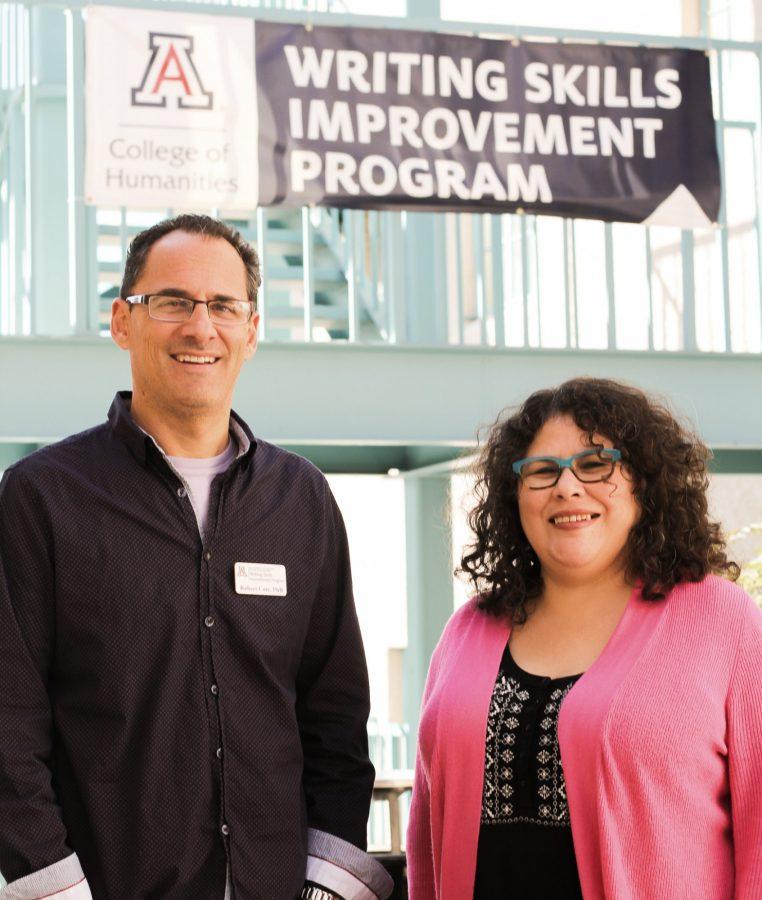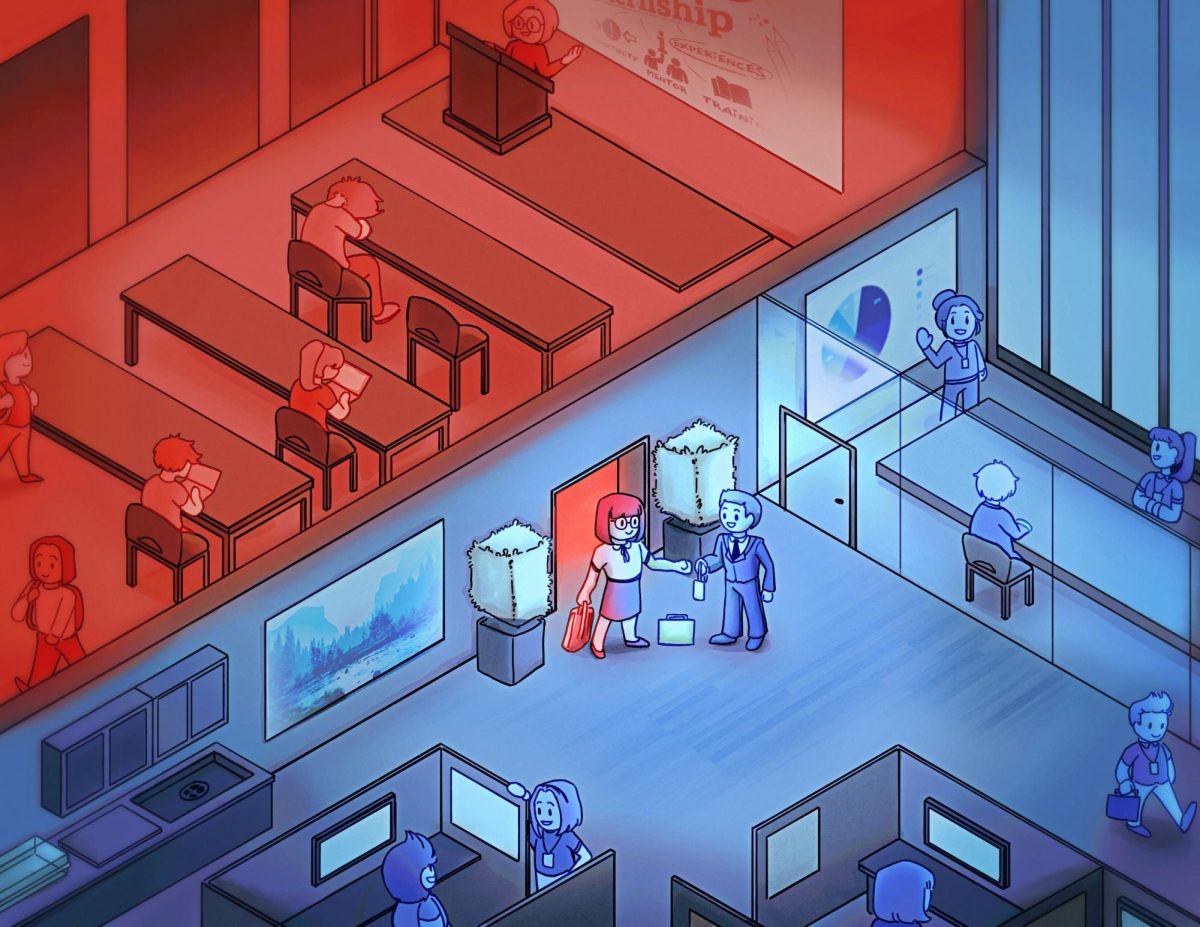How many students say they hate writing? Are you one of them?
Academic writing is something all students encounter, and if someone is struggling with it, there are a handful of meager resources suggested, like the THINK TANK Writing Center.
Just on the boundary of the west side of campus at the Geronimo Plaza on University Boulevard, the University of Arizona harbors another, more comprehensive resource: the Writing Skills Improvement Program.
WSIP is a specialized writing improvement resource for anyone from or visiting the UA or the Tucson community. According to their website, the program offers free walk-in sessions or scheduled one-on-one sessions with trained writing counselors every other week, a number of workshops and some paid resources.
Andrea Holm, outreach coordinator for WSIP, explained that students are encouraged to come to the program counselors with anything they need, whether it be a complete paper in need of revision, or a broad concept or anything in between.
“Our goal is to meet students where they’re at and to help them start to recognize the control that they have over their writing process,” Holm said.
RELATED: How dual-language picture books preserve and diversify culture
According to Holm, the reason many students dislike writing is a lack of control over the writing process, which is exacerbated by a few common experiences — the most prominent of which is only ever receiving negative feedback on their writing.
“Even if we’re writing about something that we don’t think we care about, it’s still personal because it’s our voice,” Holm said. “We should be receiving feedback that is supportive. That isn’t to say that feedback should be false … but it should be productive.”
Feeling underprepared, especially in academic transitions, is another setback Holm mentioned students experience. As a result, many students have to “play catch-up,” which Holm said can be very overwhelming.
All transitions are difficult, whether it’s from high school to college or from college to graduate programs, but one of the most intense transitions students may face is a change in location, according to Tacila Bezerra, a Ph.D. candidate in teaching, learning and sociocultural studies at the UA.
Bezerra found that academic writing can be doubly difficult for international students like herself, who are expected not only to learn another style of writing but another language as well.
When Bezerra came to the UA for her master’s degree in 2010, her first professor insisted she drop the class because she could not write in English well enough.
“As an international student, it was so disappointing,” Bezerra said. “I knew I was bad. I asked for help.”
But Bezerra’s professor offered no feedback, she said, and neither did the professor for her replacement class. There was no support available.
The dean of the Graduate College eventually told her about WSIP, and she has since never submitted a paper without going to the program’s writing counselors first. Bezerra said she feels that the counselors at the program understand the experiences of international students, so they are better prepared to give them support. Without the program, Bezerra said she might not have finished graduate school.
Mary Belle Cruz, a Ph.D. candidate in arid lands resource sciences at the UA, reported similar experiences with the program as an international student. Cruz described academic writing as a very unique skill, one that the counselors at WSIP helped her cultivate in a very personalized way.
The program addresses “how you can really improve the way that you are communicating your ideas,” Cruz said. For her, this means that it is not just improving her writing in English, but also helps her avoid many of the same mistakes when she writes in Spanish,her first language.
Jack Dawson, a UA alumnus with a Bachelor’s of Fine Arts, testified that the program is equally useful for undergraduates. Dawson has been using the program since his sophomore year and plans to continue using it as he applies for a master’s degree in mental health and rehabilitation.
RELATED: English and creative writing majors finding jobs at event
“It was more rewarding when I’d get papers back that instead of it saying 75 or 77, it’d say 95 or 98,” Dawson said.
Dawson regularly meets with Robert Cote, the WSIP director and UA alumnus with a Ph.D. in second language acquisition and teaching.
“Cote’s kinda become more than just somebody that looks at your paper,” Dawson said. “He forms a connection with a lot of the students he sees.”
Cote said he does a lot of job preparation work with his students in addition to working with their writing. According to Dawson, Cote even wrote him a letter of recommendation for his graduate program applications and helped to connect him with people in his field.
According to Cote, the program has expanded since he joined about five years ago. It is now open to community members, people visiting from other countries and even sergeants from the military. Members of the staff also travel to Russia during breaks to do programs there, aiding people in general writing skills and English, according to Cote.
“We never turn anybody away,” Cote said. “Sometimes we have more demand from outside [the university] than in, depending on the week.”
Cote reported that the demand drastically increased once they moved to their new location a couple years ago.
“People say this is a very inviting space,” Cote said. “We’re not in the middle of the academic campus, we’re in the middle of the social campus.”
WSIP is located in Suite 200 of the Geronimo Building at 800 E. University Blvd. Business hours are Monday through Friday from 8 a.m. to 5 p.m. Students can register online on the program’s website to schedule an appointment or go to walk-in tutoring on Mondays and Fridays from 3 -5 p.m.
Follow Capri Fain on Twitter
















